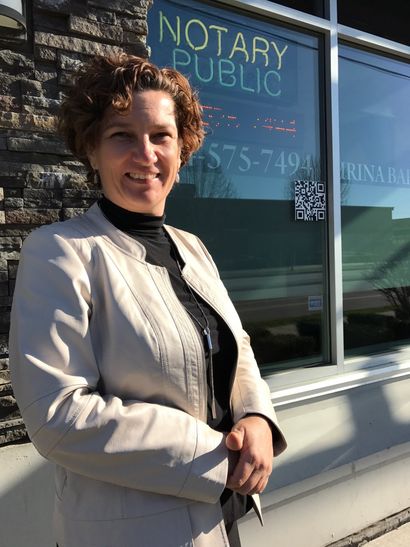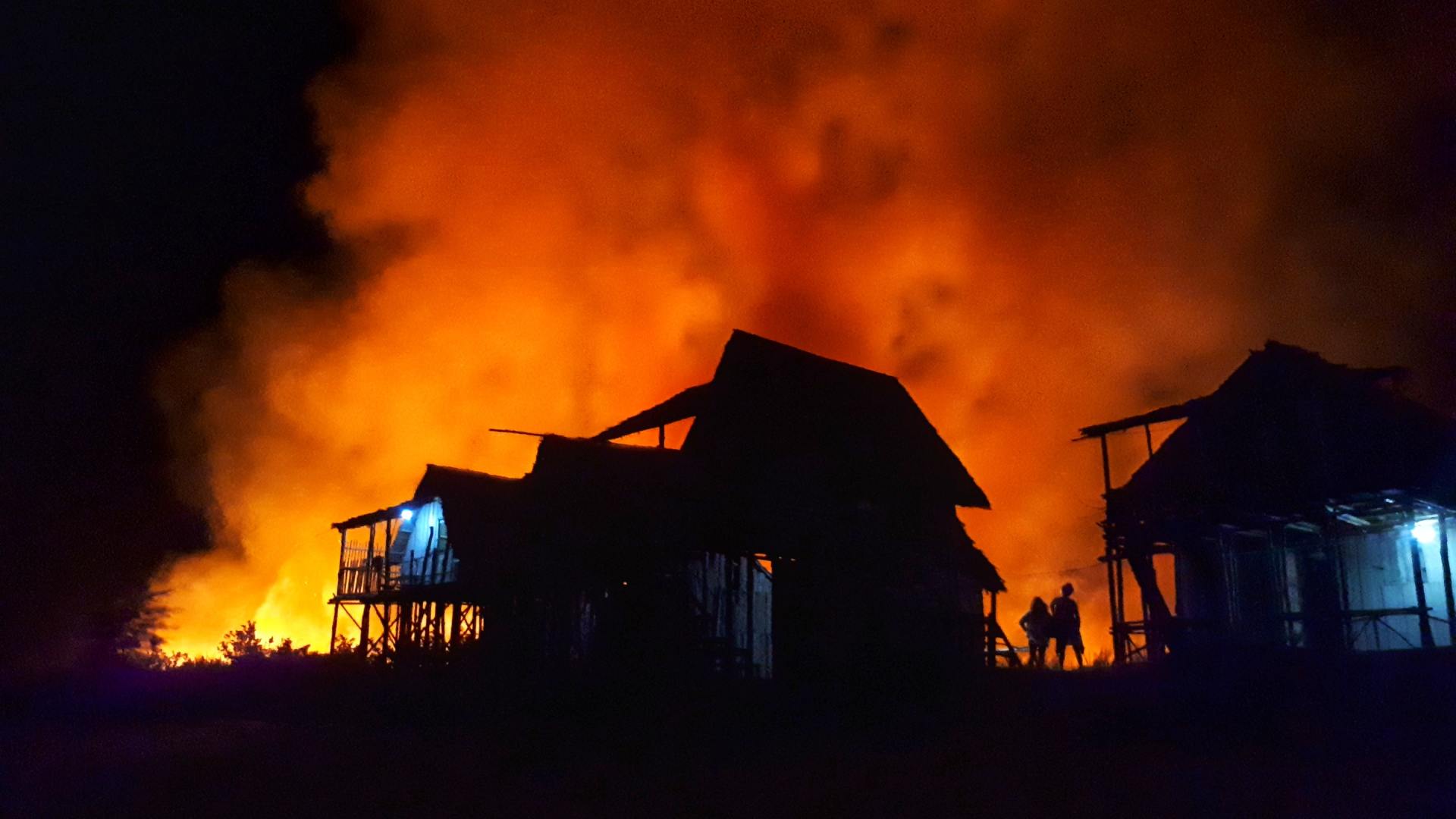CALL US TODAY · 778.835.8957
Ask Irina Bartnik
Ask Irina Bartnik
Notary Public

Irina Bartnik
Notary Public
Irina has a Master’s degree in Applied Legal Studies from SFU, an Engineers’ Degree from Latvia, banking experience [from Russia( do not underestimate that skill! )] and a background as Real Estate agent in BC for seven years. Irina is therefore familiar with Real Estate contracts and specializes in assisting clients with residential sales, purchases, refinances, transfers and estate planning matters. She speaks fluent English and Russian as well as a working knowledge of Latvian.
Irina Bartnik- Notary Public
C (604) 575-7494
https://fraservalleynotary.ca/

By Irina Bartnik Notary Public
•
April 19, 2022
On April 7, 2022, Finance Minister Chrystia Freeland introduced the 2022 Federal Budget. The budget proposed several measures designed to help stabilize the housing market, address housing supply, and make it easier to save and invest in housing. Three measures that the 2022 Federal Budget introduced which affect the real estate market include: Two-Year Ban on Foreign Homebuyers The Budget contemplates new rules to prohibit foreign commercial enterprises and individuals who are not Canadian citizens or permanent residents from acquiring residential property in Canada for two years. Notably, refugees, foreign workers and international students on the path to permanent residency are expected to be exempt. First Time Homebuyers Incentives The Budget introduces a Tax-Free First Home Savings Account that will allow first-time homebuyers to contribute up to a maximum of $40,000. Contributions to this account would be tax-deductible like an RRSP, while withdrawals to buy a home would be non-taxable like a TFSA. In addition, the Budget doubles the existing First-Time Home Buyers’ Tax Credit (from $5,000 to $10,000). Anti-Flipping The Budget contemplates new rules requiring any person who sells residential property they have held for less than 12 months to be subject to full taxation on their profits*. This will apply to residential properties sold on or after January 1, 2023. *Exemptions would apply for Canadians who sell their home due to certain life circumstances e.g. death, disability, the birth of a child, a new job, or a divorce. It is expected that these measures will be implemented in new legislation over the coming months. Do you feel these measures will assist in stabilizing the housing market and allow opportunities for first time buyers?

By Irina Bartnik Notary Public
•
March 11, 2022
The speculation and vacancy tax is designed to turn empty homes into housing for British Columbians. The aim is to ensure foreign owners and those with primarily foreign income contribute fairly to BC’s tax system. This tax is an annual tax that applies based on: How property owners use their residential property The property owner’s residency status Where property owners earn and report their income Most BC residents will be exempt from the tax. There are also some specific regions that aren’t subject to the tax. If you don’t meet the exemption criteria, payment is due July 2, 2022. You must declare each year because your circumstances may change during the year and this declaration is due on March 31 of each year ns Declaration Timeline Receive your declaration letter mid-January to mid-February Declare by March 31 You declare how you used your property last year. If asked about your income, use income from the year before last year. If you owe tax, pay by the first business day in July Why everyone must declare If a property has more than one owner, a separate declaration must be made for each owner, even if the other owner is your spouse or relative. This tax is based on how each owner uses the property and whether they have foreign income, the province requires each owner on title to declare separately! Have you claimed your Speculation and Vacancy Declaration yet? If not, claim it here: https://www.etax.gov.bc.ca/SVT/_/ Deadline for Speculation and Vacancy Tax Declaration: March 31, 2022 Note: The speculation and vacancy tax is different from Vancouver's empty homes tax . The rules for each tax and how they apply are not the same.

By Irina Bartnik Notary Public
•
February 18, 2022
Property Transfer Tax Exemptions The three most notable ways to avoid property transfer tax by form of an exemption are: First Time Home Buyer Property Transfer Tax Exemption Newly Built Home PTT Exemption Family Exemptions First Time Home Buyers Property Transfer Tax Exemption To help enter the market, the first-time home buyer’s (FTHB) program gives an exemption to the property transfer tax in the case that you can qualify. If you are a first-time home buyer and Canadian citizen/permanent resident that is purchasing a resale property to live in as your primary residence under $500,000, then you may be eligible for a full property transfer tax exemption. There is also a partial first-time home buyer PTT exemption for properties less than $525,000. Newly Built Homes Property Transfer Tax Exemption There is a PTT exemption for newly built homes with a fair market value of up to $750,000, including a house constructed on vacant land, a new apartment in a newly built condominium building, a manufactured home on vacant land, and other newly built homes. There are also occupancy requirements, and you may be eligible for a partial exemption for newly built home with fair market value of $750,000 – $800,000. Family Exemptions When a related individual transfers a principal residence or an interest in a principal residence to you, you may be exempt from paying PTT. To qualify for a full exemption from PTT, the entire property must meet these requirements, regardless of the interest in the property that may be transferred. Who is considered a related individual? Your spouse, child, grandchild, great-grandchild, parent, grandparent or great-grandparent, the spouse of your child, grandchild or great-grandchild, the child, parent, grandparent, or great-grandparent of your spouse. Who is NOT considered a related individual? Your sister, brother, uncle, aunt, niece or nephew is not considered to be a related individual. This means, for example, that you are required to pay PTT if your brother or sister transfers a principal residence to you. For more info information on property transfer tax and what may qualify for an exemption, you can also refer to the government’s website: https://www2.gov.bc.ca/gov/content/taxes/property-taxes/property-transfer-tax/exemptions

By Bjorn Rygg, Accredited Home Inspector
•
January 17, 2022
Any home can have a radon problem – old or new homes, well-sealed or drafty homes, homes with or without basements. An estimated 1 in 6 homes in the U.S. is affected by radon. Prolonged exposure to unsafe levels of radon can increase the risk of lung cancer; in fact, radon is the second leading cause of lung cancer after smoking. There is real risk in not knowing if a home has a high level of radon.

By Bjorn Rygg, Accredited Home Inspector
•
November 12, 2021
Smoke alarms are an important defense against injury or death in house fires. Here's what you need to know: • As in real estate, location is key! Smoke alarms should be in installed every bedroom, outside every sleeping area, and on each level of the home. • It's best to follow the manufacturer's instructions for placement, whether on the wall or ceiling. High, peaked ceilings have dead air space at the top; in these instances smoke alarms should be placed no closer than 3 feet from the highest point. • There are two primary types of smoke alarm technology: ionization and photoelectric. According to the National Fire Protection Association, ionization alarms are more responsive to flames, while photoelectric alarms are more sensitive to smoldering fires. For the most comprehensive protection, both types or a combination unit should be installed. • A common rule of thumb is to replace alarm batteries when changing to or from Daylight Saving Time in fall or spring. Many newer alarms have 10-year lithium batteries that eliminate the need for new batteries, but the unit itself must be replaced when the battery dies. • If the alarms are hard-wired to the home's electrical system, make sure they are interconnected for maximum effectiveness – meaning that if one alarm is triggered, all of the others will sound as well. • The newest type of interconnected smoke alarms are wireless. This technology allows detectors to communicate with one another and, like their hard-wired cousins, will sound all of the units even if just one is triggered initially. Early alerting is key to surviving a fire. Following these simple but important measures allows occupants to be warned, helping to prevent injuries and fatalities.

By Irina Bartnik Notary Public
•
October 15, 2021
Prior to your anointment with a Notary, you will receive a phone call from our office. We usually make a first contact on your file, one month prior to closing. This is when we will discuss the details of your personal information and schedule the appointment. During your appointment with the Notary you can expect to sign all the final documents that will be registered in Land Title office, transferring the ownership of your property to your name or, to the name of the purchasers if you are the Seller. The documents that Notary office prepares are based on the Contract that you negotiated though your Realtor. If you need a Mortgage to purchase the property, the final financing documents will be signed during this appointment as well. The Notary will communicate with all the parties involved in this transaction, prior to your appointment, and documents that you sign during your appointment reflect all the prep work that was done on your file. You will be required to bring 2 pieces of ID and provide your social insurance number for sure. Other documents may be required also, but that will vary, and largely depends on the lender that you are using. The final draft with the balance of your down payment will be due one day prior to closing, so you will have plenty of time after your appointment to go to the bank and make the final draft. If you are selling the property, sale proceeds of your home will be available to you one day after the closing day.

By Irina Bartnik Notary Public
•
September 16, 2021
Once all the conditions (subjects) are satisfied on your contract of purchase and sale, your Realtor will contact you for the name of the Notary or Lawyer that you would like to use. Real estate office would gather all of the information on your contract and send it to our office. We use this information to review the contract and as long as there is still availability on the schedule, we add your name on our Calendar to call you about 2 weeks prior to your closing ( moving date). All the files are accepted on first come, first serve basis and if for some reason we cannot help you with your file, your Realtor would receive the message from us right away. Sometimes we have clients calling our office and wanting to schedule the appointment even before the contract gets to our office. Unfortunately, it is not possible to do so as until we received your contract and had chance to evaluate it, we do not know if we can help you yet. As Real Estate market is very busy these days, it is not a bad idea to be proactive about getting your name on a Calendar with a Notary. If you are in touch with our office, you can always send us copy of your contract to us by e- mail. As long as you have subject removal attached to it that will secure your spot in our schedule. Not all the Notary offices have the same procedure of accepting files. Please contact your Notary office to verify that they accepted your file to be processed by them.

By Irina Bartnik Notary Public
•
August 12, 2021
When you purchase a property (Strata or Single family home) it is important to secure insurance on the property that you are buying, prior to the subjects removal. Some properties cannot be insured. The Bank would not give financing ( Mortgage loan) if property is not insured. It would be silly to find out 2-3 days prior to closing that property that you would like to purchase cannot be insured. At the same time if you remove your conditions or subjects ( or did not have any subjects in first place) , you promised to the Seller that you are purchasing their property unconditionally. Property may not be insurable for various reasons. Most often it is due to the certain type of pipes or electrical wiring. Most recently, some properties in Okanagan cannot be insured as they are close to the evacuation zone. Always consult with your Insurance Broker about the insurance prior to your Subjects removal.

By Irina Bartnik Notary Public
•
July 20, 2021
Statement of adjustment is the Document that is prepared by your Notary or Lawyer and it shows all the expenses associated with the Purchase or Sale of the property. For example if you are selling the property and already pre- paid Property taxes for the whole year, or for Strata fees for the current month, Statement of Adjustments will provide credit to you as a seller for the amounts that you over paid. Also, Statement of Adjustments will show total Real Estate fees and Legal fees payable on the transaction. If you are purchasing the property, Statement of adjustments will reflect your closing costs, for example Property Transfer tax; cost of Strata forms, Legal fees and cost of getting financing. The outcome of Statement of adjustments is the amount that Seller will receive after the sale is completed and for the Buyer it will show the amount that they need to bring to the Notary prior to closing to complete the sale.
Have A Question for Irina?
Thank you for contacting us.
We will get back to you as soon as possible.
We will get back to you as soon as possible.
Oops, there was an error sending your message.
Please try again later.
Please try again later.
Aldergrove | Brookswood | Campbell Valley
| Glen Valley | Fort Langley | Langley City | Murrayville | Otter District
| Salmon River | Walnut Grove | Willoughby Heights
© 2025
All Rights Reserved | Andy Schildhorn Personal Real Estate Corporation | Created by M.A.P | Powered by Conscious Commerce Corporation





